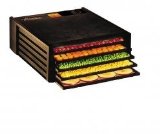I gave in and ordered a fitbit ultra. At some point, I lost my original fitbit and by the time I found it again, I lost the charger. I kept thinking I’ll find the charger, and what a waste it would be to buy another fitbit when I already have one! And then I thought I could get a charger through ebay, until I realized that would cost me at least half (if not more) the price of a new fitbit.
So. New fitbit! I got the plum one since it was on sale through my gym.
The ultra is pretty nifty; it’s a lot like the original but with a stopwatch and stair mode. But those are not the things that excite me.
As awesome as the fitbit is, and as awesome as all the graphs and stats are (and they are an OCD dream), I have always hated the food logging interface. It was clunky and time consuming. Creating custom foods was a pain. I used to wish that I could somehow combine LoseIt with my fitbit data, and guess what… No idea when this happened, but sometime during my long separation from my fitbit, they did exactly that.
For that matter, the food logging interface on FitBit itself looks a lot better now. Will have to play around with that some.
Fitbit has also just launched their new product, the Aria: my new object of health-tech lust. A scale. It looks like a competitor with the Withings Wi-Fi Body Scale, which has long been the gold standard of high tech scales. Both obviously measure your weight, but both also measure your body fat vs. muscle percentages. They also each have free iPhone and Android apps, wireless syncing, family settings (so more than one person can use the scale), nutrition recommendations, and exercise plans.
For that matter, both can be linked to your fitbit or LooseIt data, among many other apps & services. Withings seems to have more services set-up already, but that’s not too surprising considering how long they’ve been around.
The only real difference I’ve been able to see, not having used either one, is price. The fitbit aria is $30 cheaper, clocking in at $129.99.


















 Twitter
Twitter